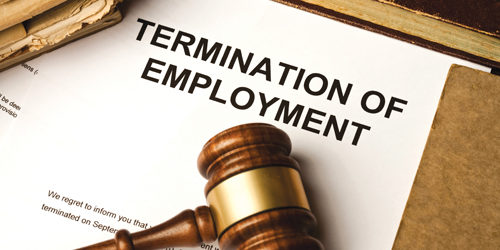
“Reasonable” is the employment lawyer’s favourite word. A reasonable investigation must precede a disciplinary sanction. Dismissal must be a sanction that is fair and reasonable in all the circumstances. And when later being assessed by an Employment Tribunal, the test applied is that dismissal must have been within the range of reasonable responses.
Many competing factors go into the mix in deciding what is reasonable, and making the judgement call is not always easy.
What constitutes a “reasonable investigation” in advance of a disciplinary case? This is determined by the complexity and seriousness of the matter under investigation. What is clear is that the test is not ‘no stone unturned’ – a police level enquiry is not a requirement under employment law rules. But an employer is nonetheless well advised to think broadly in terms of potential evidence and, depending on the circumstances being investigated, should consider things like CCTV, internet and email usage and mobile phone records, and should cast the net widely in terms of witnesses.
As above, a dismissal must be “fair and reasonable in all the circumstances”. To give an example, in a redundancy context, an employer might have a vacancy in a different department. The employee who is being made redundant is not fully qualified for that role, and other external candidates are. But would it be “fair and reasonable in all the circumstances” to favour the existing employee, and to make allowances for some training, to enable that employee to take up the available role? Whilst there is no hard and fast rule that the employer must favour internal candidates, in some circumstances the answer would be yes, and an unfair redundancy dismissal may result if the employer does not offer the alternative role to the employee who is facing redundancy.
In determining reasonableness, most challenging of all perhaps is the requirement to make reasonable adjustments for disabled employees. Not only are there many factors to take into account, but we often find that employers are unsure as to who can advise them as to what is or is not reasonable.
To be clear, that assessment does not fall within the remit of occupational health. Whilst occupational health advisers can give opinions as to which adjustments are possible, and which would, for example, aid the employee in returning to work, it is not their function to advise employers what is reasonable. That is not a medical issue, but a legal question. Therefore this is a judgement call to be made by a blend of senior management and legal advice. What are the cost implications of the adjustment? Can the employer afford it, and are any external grants available? Would the adjustment have a significant and long-lasting effect on the employee’s return to work?
Taking these and other factors into account, legal counsel, drawing on experience of similar cases, can assist employers in making the judgement call as to what is reasonable.
In a case involving a charity, a charity shop manager developed a reasonably serious back complaint, which qualified as a disability. She suggested a range of adjustments to enable her to keep the job; requiring donors to deliver clothing etc in small packages; requiring donors to drop heavy items at other regional shops; physical adjustments to the shop, and various others. Whilst all of these suggestions were potential adjustments, the question was, in the context of a charity, were they reasonable adjustments? The employer’s judgement was that in all the circumstances these potential adjustments were not reasonable. This had the unfortunate result that the employee could not keep her job, so it was an especially difficult call to make.
In the final analysis, it is for the Employment Tribunal to determine what it believes to have been reasonable. But the Tribunal cannot remake the employer’s decision. It can only determine that a dismissal was unfair if this outcome was “outside the band of reasonable responses” i.e. one that no reasonable employer would make. Similarly, in determining a reasonable adjustments case, the Tribunal must keep in mind all competing factors in deciding whether or not an adjustment was reasonable, and must balance employer’s and employee’s interests.
Given the potential uncertainty, and the finely balanced questions which arise, employers are well advised to reach mutually satisfactory compromises with employees, and to avoid being hostage to the vagaries of reasonableness.





